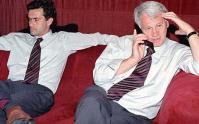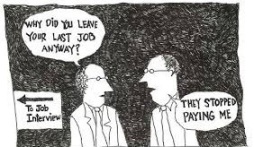I have a Master’s degree in public relations, a blog which has attracted hundreds of visitors within 6 months, one year experience working in an award-winning in-house communications and press team, a Klout score of 52, oh, and I’m under the age of 30. But what do PR employers value most?
My generation
I reveal my Klout score as an indicator of my social media activity and experience and in the same vein I disclose my age. Both are as unimpressive as they are unimportant; unless you look at job descriptions for PR jobs.
Social media is innate, almost natal, to generations of people, why then; does it still top essential skills taxonomies within job adverts? I have written before, as a guest blogger for Stephen Waddington (@wadds) (see here) about the essentialism with social media for people who grew up in the 90s and 2000s. I do not consider it a specific public relations skill, and I struggle to see why PR employers do. But they do, so as much as it seems at odds with my perspective, for the meantime at least, I have no choice but to extol my digital virtues if I put myself forward as an applicant.
You can read my personal blog here. I often have my blogs published on the North East CIPR website.
I know how, but I don’t know why
So, the ability to look after the social media channel is an advantage when applying for a job. We are then arguably left with a straight shoot-out between education and experience. Which means the most? My Master’s with Merit (strategy) and continued professional development with the CIPR (learning and development), or my experience of working for one year in an award-winning press office (practice) where I have built professional relationships with journalists and broadcasters (media relations) and developed my writing skills producing press releases, copywriting and producing articles for magazines and corporate blogs (tactics). I have learnt a lot from practical experience, although, with my background in theory, I think I have picked things up quicker, and been able to fit things into the bigger corporate picture more easily.
I feel my academic background has enabled me to understand the ‘why’, as well as the ‘how’ of public relations.
PR Daily, in an article debating this very matter last year, somehow managed to scribe their views onto the very fence they were perched upon:
“There’s great debate over whether experience or a college degree is more important in a job search. Some argue that experience makes up for the lack of a degree; others say a degree provides something that experience can’t. Is one more valuable than the other?”
I believe that academia and practice need to have a mutual respect. Public relations’ aspiration to be recognised as a profession will only come once academics and practitioners become entwined in a loving embrace and the CIPR make education and professional development become compulsory.
It’s all academic
Is knowing the ups, and indeed downs, of working in a specific sector preferred to being an effective (academic) strategist?
I understand theory beyond buzzwords and have some ideas of how the theory should be applied and inform practice, but surely with my experience I need only apply for positions which ask for media relations and time spent in a press office? At the entry end of the job market it is difficult to find evidence of employers valuing academic qualifications, when in fact, my MA PR offered me many experiences in crisis management situations, media training and experience of writing integrated campaigns and working on and pitching heterogeneous briefs. Moreover, my degree taught me the importance of professional standards and forced me to establish my ethical and moral orientation.

In sports and in schools (to name two fields with which I have some experience) there is a growing tendency to put people at the helm of an organisation or team sans-coalface experience; head teachers from a business background, behaviour managers from the armed forces and police, or football managers who learned their trade translating to foreign footballers for their touchline-prowling forefathers.
I know what you’re going to say. A bit of all of these things; each in equal measure; two-thirds of one and one of the other; 10% inspiration and 90% perspiration! Okay, I am well aware that there is not just one element needed to be successful in PR, and that different roles, sectors, employers and situations demand a variety of skills.
Stephen Waddington, in an address as CIPR president to a @CIPR_NorthEast gang, predicted what the most important things for PR practice this year would be. There was a heavy emphasis on learning, education and being able to see the bigger picture (I will discuss my take on this in more detail about this in my next blog entry).
A posteriori
Social media skills are important, but not just for PR, they’re important if you want to have a conversation to a whole generation of people; age should not be important, but what young people lack in experience of working in PR they make up for in intrinsic social media fluency. Without writing off experience altogether, I feel there should be a greater emphasis put on education, even as a starting point.
So, if I look worried in a job interview, at least now you’ll understand a bit of why.

